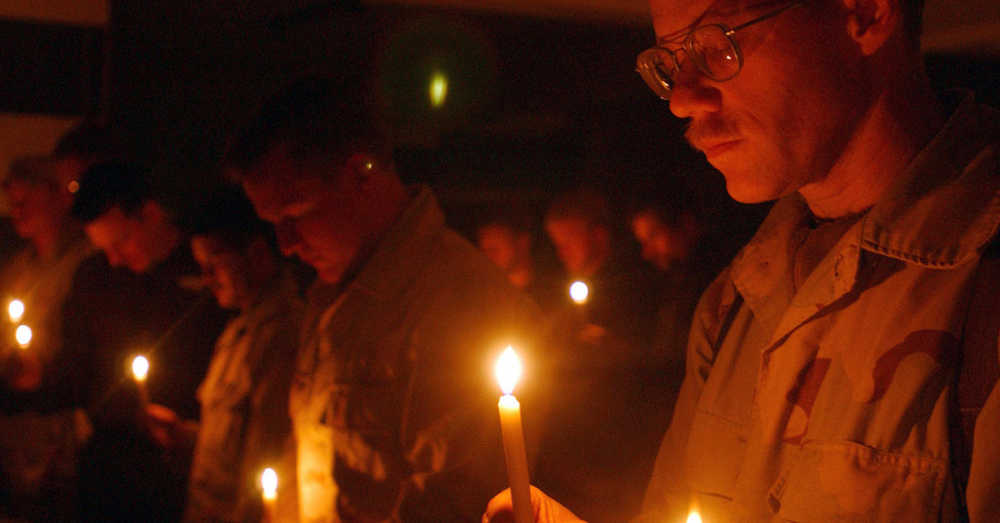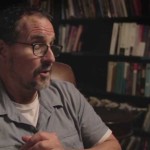We run our website the way we wished the whole internet worked: we provide high quality original content with no ads. We are funded solely by your direct support. Please consider supporting this project.

Do My Prayers Matter?
We talked about the risk God took in creating the world as he did (see previous post). The choices made by humans and spiritual agents influence what transpires in history. This sets the stage for an understanding of how our prayers have influence on what actually happens in the world. To make this point, I want to quote a passage from the novel The Blood and the Lamb by Peter DeVries. In this novel, a woman who has tuberculosis asks Wanderhope, the main character who also has tuberculosis, about how he prays for healing. He confesses that he actually does not pray. He states,
“That would mean [that] the one I was addressing had done this to you to begin with, which I find hard to believe… Asking Him to cure you—or me, or anybody—implies a personal being who arbitrarily does us this dirt. The prayer then is a plea to have a heart, to knock it off. I find the thought repulsive. I prefer to think we’re victims of chance to dignifying any such force with the name of providence.”
Wanderhope assumes that either God controls all things and is therefore arbitrary—which means that prayer is only an act of trying to twist God’s arm—or that history unfolds and evils come upon people by chance, which means that praying is useless.
Wanderhope, correctly, does not attribute to the will of God the arbitrary way in which some contract tuberculosis and others do not. He is correct to reject prayer as a form of divine arm twisting. He is also correct that people afflicted with something like tuberculosis are largely victims of chance. As I’ve argued in many places, there is no final explanation as to why Wanderhope or this woman contracted tuberculosis. A myriad of variables converged to produce this unfortunate situation.
However, Wanderhope’s conclusion that prayer is useless is wrong for two reasons. First, we need not think that God must control everything or that chance has ultimate control. There is a view that lies in between, where God influences the whole process, working to bring about as much good and to prevent as much evil as possible.
Second, while there are many contingent variables that influence every particular situation, one of those variables is the genuine say-so of humans who can choose to pray. Wanderhope does not see how he has any say-so on a spiritual level. God created us so that one of the ways we influence the world is by influencing God through prayer.
Therefore, while we recognize that chance is a reality, Wanderhope should have still prayed. Would he be twisting God’s arm to do what God would rather not do? By no means. Instead he would be exercising his moral responsibility and thereby contributing to the possibility of God doing what God most likely already wanted to do.
Would God be arbitrary in responding to this prayer either by healing or by not healing this woman in the story? Or would it be the woman’s fault if she was not healed? We have no reason to assume this. There are simply too many variables for us with our myopic, creaturely perspectives to discern why in any given instance one person was healed while another was not.
If the woman were healed, would that mean that God was the one who gave her the disease in the first place? Not according to Jesus, who attributed diseases to Satan or to one of his demons. All of God’s healing work are acts of war, as the NT depicts sickness and disease as originating from the devil. In praying against such matters, we are siding with God against his enemy and exercising our God-given authority as joint heirs with Christ.
—Adapted from Satan and the Problem of Evil, pages 236-238
Related Reading

Why Is It So Much Easier For Jesus To Perform Miracles When He Said We Would Do Even Greater Things? (podcast)
In this episode Greg discusses the miracles of Jesus, particularly looking at why we struggle to perform them. Episode 27 http://traffic.libsyn.com/askgregboyd/Episode_0027.mp3

Podcast: Is It Wrong To Pray to Saints?
Greg discusses the risks and issues associated with praying to anyone or anything other than God. http://traffic.libsyn.com/askgregboyd/Episode_0242.mp3

Why Isn’t God More Clear?
Ever wonder why God isn’t more clear and obvious? Here’s Greg’s take on that question.

Why is the Lord’s Prayer So Formulaic? (podcast)
Greg considers if Jesus was acting out of character when he taught the Lord’s prayer. Episode 476 http://traffic.libsyn.com/askgregboyd/Episode_0476.mp3

What, Father, Do You Desire This Minute?
Frank Laubach, a 20th century missionary to Philippines, wrote about the challenge of being continually aware of the presence of God and learning to respond to God’s promptings. He wrote, “I feel simply carried along each hour, doing my part in a plan which is far beyond myself. This sense of cooperation with God in…

Bowing to the American Flag. Literally.
Kurt Willems shared this interesting item he found on Amazon. In the product description it admonishes us to: Submit yourself to the Prayer Bench and open up your life to receive more of God. Hmmmmmm. How about we just submit ourselves to God?
